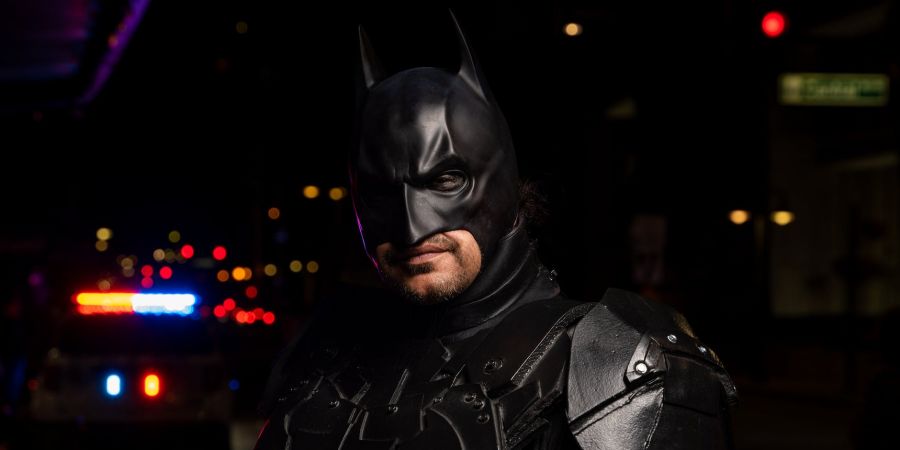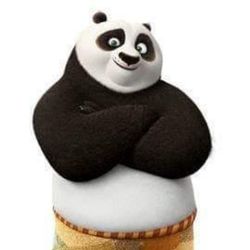

Nothing is sure throughout everyday life, aside from death, duties and cranky Batman films. The most recent contribution - The Batman, a title that helps me to remember while good natured heteros allude to Race as "the race" - hits theaters today.
Presently, it's Robert Pattinson's chance to play the tormented legend. Hollywood's most inadvertently memeable entertainer has guaranteed us that his rendition of Bruce Wayne is a "creep" (as though a person who cosplays as a bat consistently could be anything more?) and that it's a "miserable film". He's basically on the right track: "You" Batman (as it ought to be known) is a dim and depressing display. Bruce Wayne has eyeliner and has been depicted as an "emotional legend". Most shockingly, the film is right around three hours in length.
This is the seventh Batman film beginning around 2005 (eighth assuming we incorporate The Joker, which doesn't really highlight Batman, however is a lot of piece of the group). These movies are predominantly promoted towards men and it appears as though there's a unique male love for Batman. It's not difficult to see the reason why a tycoon playboy-turned-legend - with beta male companion Robin and a cool vehicle - was well known when Batman previously showed up in DC Comic books in 1939. Amidst The Second Great War, the possibility of a man who didn't have a "superpower", yet willingly volunteered to make Gotham a superior spot, was engaging. In the American sense, Batman really had superpowers: abundance, manliness and VIP status.
So what's the appeal of Batman today? Maybe it's (obscure) authenticity: all things considered, it's hard to envision oneself as Superman's Clark Kent (an unfading outsider from another planet) or Spiderman's Peter Parker (part twink, part bug). Yet, with regards to Bruce Wayne, or even Iron Man (very rich person virtuoso Tony Distinct, who quite started off the MCU in 2008), there's a minuscule, tiny possibility that men could really be him. "Wonder motion pictures are dream highlights, truly," film author Douglas Greenwood tells GQ. "Though the Batman universe, explicitly when you contrast it with other DC properties like Miracle Lady and Aquaman, is essentially plausible."
There's a comparative "genuine world" charm to James Bond, especially among more seasoned men who disdain veganism and Meghan Markle. Docks Morgan is fringe fixated on Bond: he's partaken in television banters about the establishment, tweeted about Bond north of 100 times and composed segments about who endlessly ought not be permitted to play him. (Bond can be Dark, however never gay or a lady, clearly). Morgan even (flippantly, I trust) drifted the possibility of himself being the following Bond. He appears to see the person, similar as himself, as a feature of the last opposition against "progressiveness". Tom Hiddleston's shoreline skips with Taylor Quick put him solidly no longer available to play Bond (since that is not what "genuine men" do, not that Bond is genuine). Morgan despised Daniel Craig wearing a pink coat and conveying his youngster in a papoose (that was "castrating"). "There's an interest that Morgan projects towards a seal of a specific kind of manliness," says film pundit Caspar Salmon. "A ton of what Morgan does is savaging, yet his commitment to 'Security' is by all accounts absolutely true."

Be that as it may, even James Bond fails to measure up to Batman with regards to male deference. We saw this work out in an episode of Companions - the one-time standard of current metropolitan manliness - in 2001, when Chandler and Ross battled about who could credit the coolest tuxedo. Chandler found a tux worn by Pierce Brosnan and demands that he needs to "get hitched in James Bond's tux", however after discovering that Ross has acquired his thought process was a tux worn by Val Kilmer in Batman Perpetually, he becomes discouraged. "Batman is such a great deal cooler than James Bond!" Chandler demanded.
Batman has changed a ton beginning around 2001. The movies have situated themselves as more "creative" since the immensely fruitful Nolan set of three - Batman Starts (2005), The Dull Knight (2008) and The Dim Knight Rises (2012). There was a post mortem Best Entertainer Oscar win for Heath Record in 2009, trailed by Joaquin Phoenix for The Joker in 2020. The movies being viewed as greater corresponds with a plummet into haziness: Batman is more confined, tormented and his foes have all the more obviously political points (in The Batman, for instance, Paul Dano's The Riddler is a semi incel). The movies present a more pessimistic perspective on a general public that feels hopelessly bad.
What's driving this shift? "I think a ton of the Nolan-driven 'obscurity' of comic book motion pictures can be credited to the extraordinary skepticism and bafflement of post-9/11 American film," says Clarisse Loughrey, The Free's film pundit. "That feeling of political mindfulness and self-cross examination is a response to the world we live in at this point."
Greenwood believes Nolan's create some distance from dream started Batman's plummet into haziness. "The superhuman classification has been riffing on wrongdoing noir for quite a while, however there was an infusion of variety that Nolan drained out totally with his movies," he says. Concerning the Batman films being seen as "more tenable", grittier heroes are certainly more engaging for "regarded" entertainers looking for grants. In any case, the marginally embarrassing Ben Affleck Batman motion pictures demonstrate that haziness doesn't necessarily make a decent film: "Affleck's Batman films looked and felt generally comparative [to Nolan's], yet bombarded, in light of the fact that they had little thought behind them."


